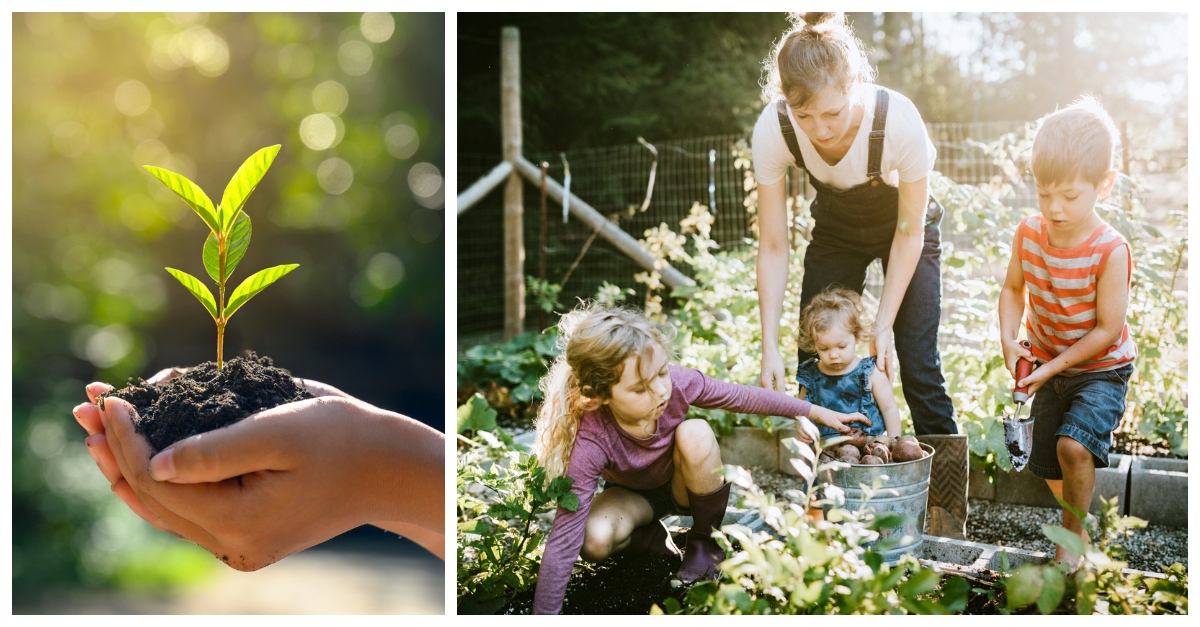
Before we know it, the ground will thaw and blades of grass and spring bulbs will poke through the snow and remind us all that new life is right under the surface and yard work is right around the corner. I have already started to think about what I will put in the garden this year. The raised bed in my backyard is small enough to manage while still managing a house, but it’s big enough to yield a modest supply of fresh vegetables season after season. My home garden is also a great way to get my kids involved in a hobby that will serve them very well throughout their entire lives. Gardening is not just a pastime and outlet for us; gardening benefits kids in so many ways, from fostering bonding time to encouraging them to eat more healthily.
Here are 10 awesome and practical reasons to invite your kids into the garden!
Encourages Planning and Creativity
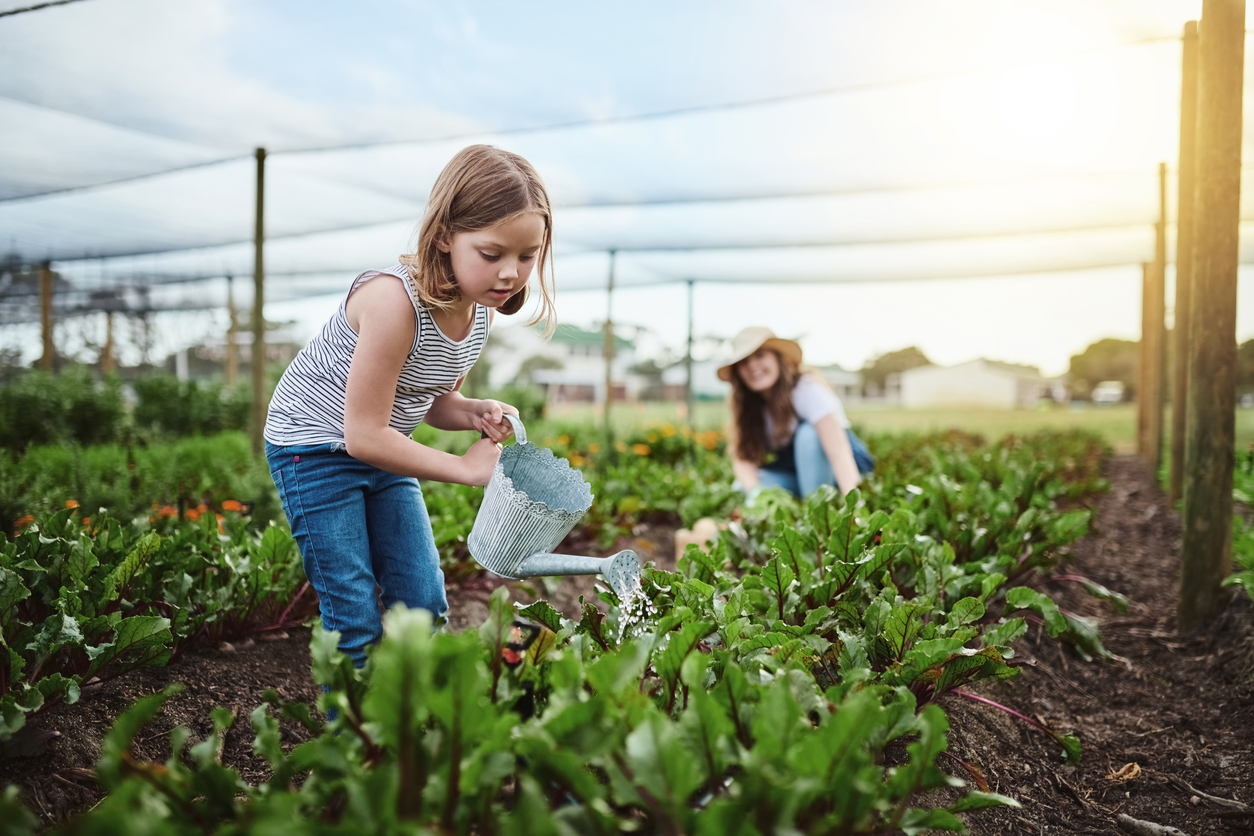
Before starting your garden, talk about what kind of plants you want to grow and where you will put them. Figure out when the seeds or plants can be put into the ground based on where you live. Talk about what pests — animal or insect — could impact the garden, and figure out how to keep plants safe. Ask questions like, will our plants have enough sunlight? When will they be ready to harvest? What tools will we need to take care of our garden?
Creates Adventurous Eaters
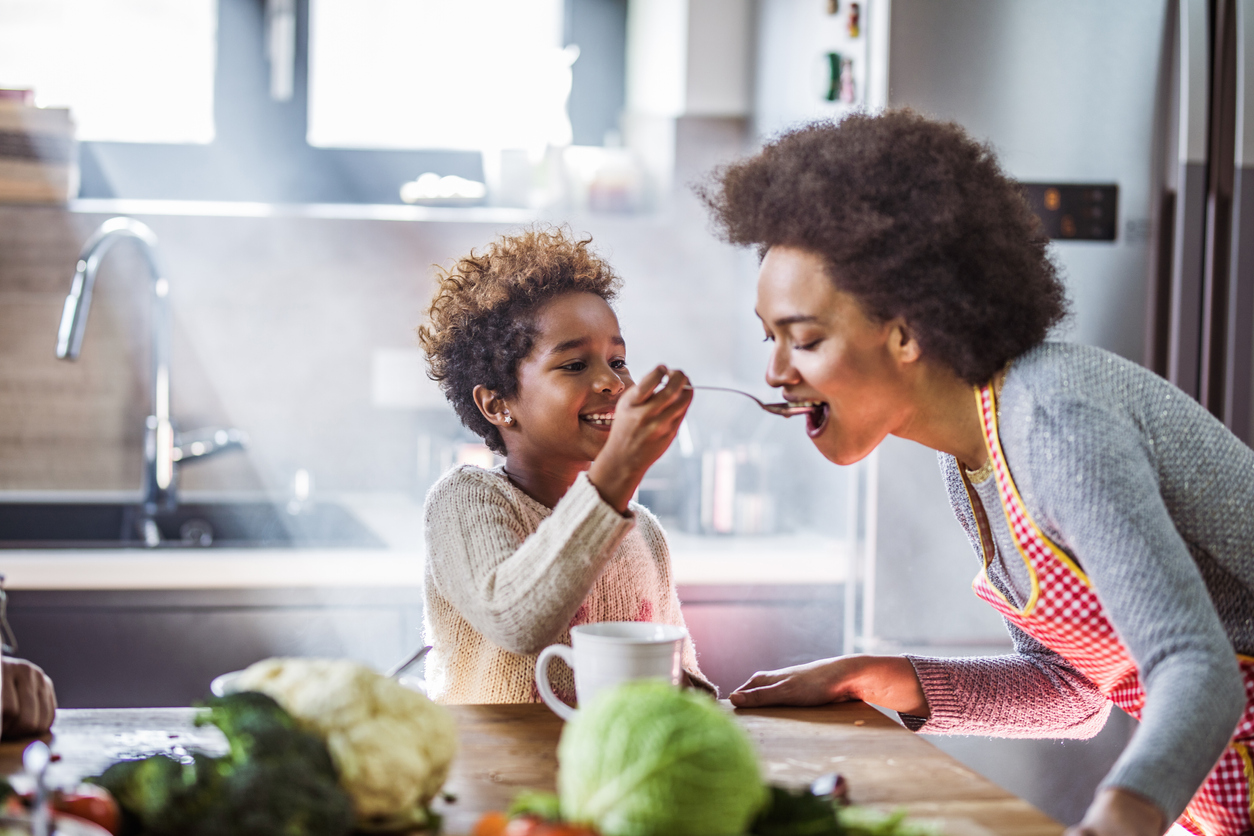
Kids stereotypically avoid vegetables, but if they grow them, they are more likely to eat them. Scientists call this a "positive food environment." When kids see us nibble on fresh fruits and veggies from the garden, they will too, and when they are involved in growing and harvesting their food, they will try new foods and eat healthier.
Teaches Responsibility
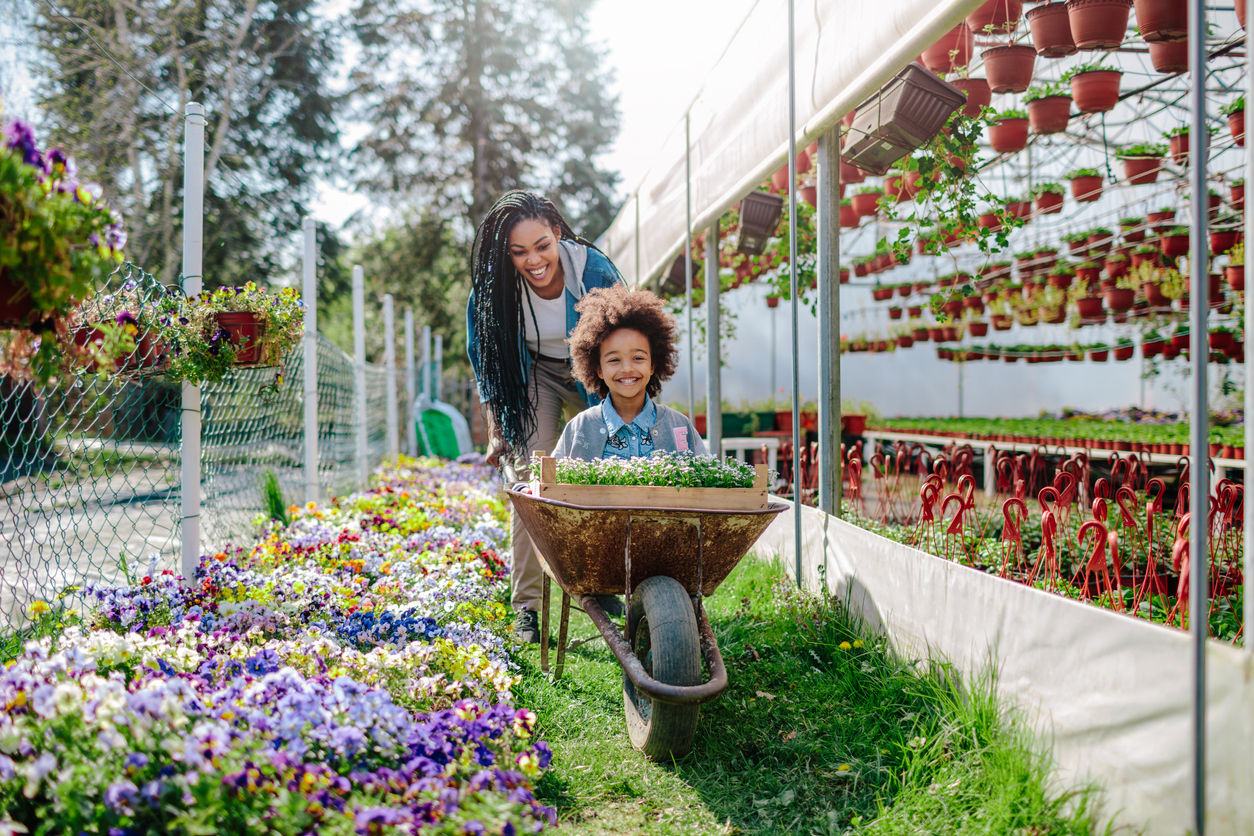
Gardens don’t take care of themselves. Kids will need to check on their plants to be sure they are healthy. Weeding, watering, and adding supports to some plants are essential to their growth.
Promotes Physical Activity
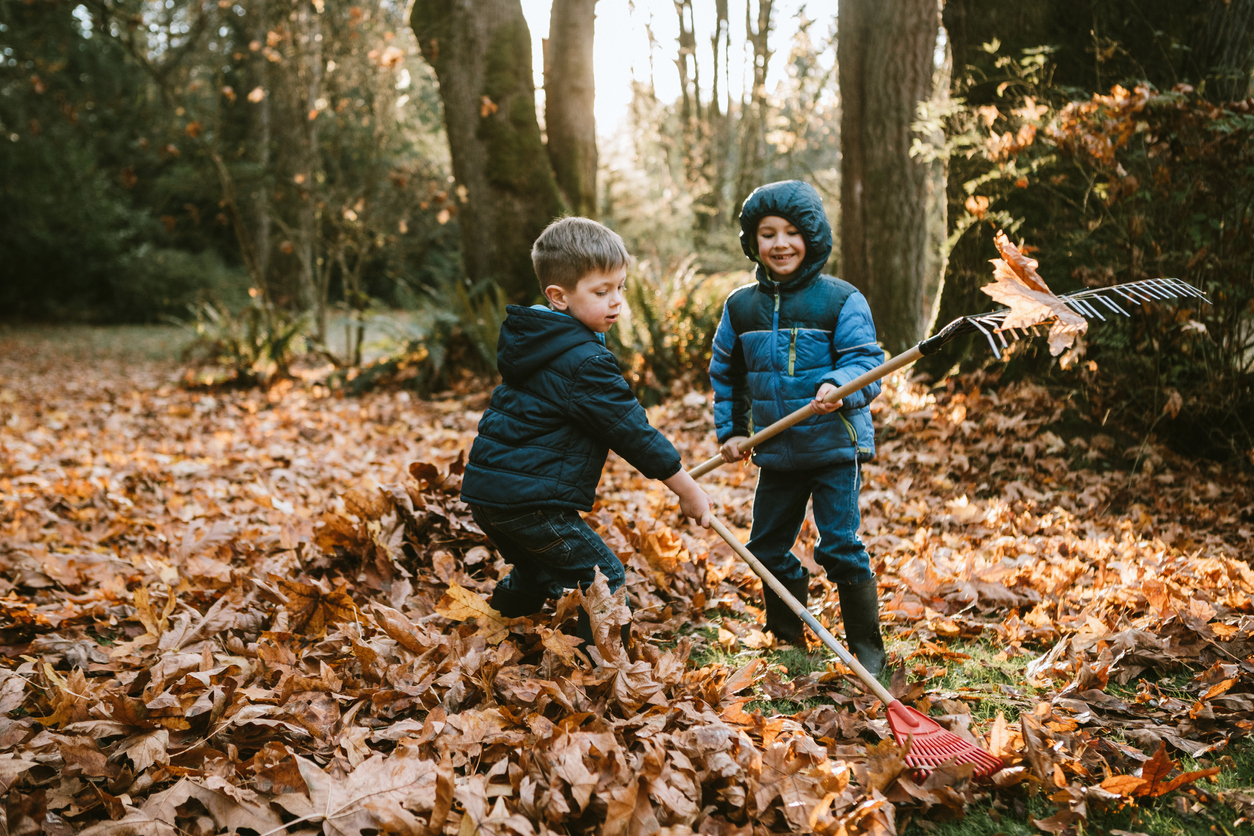
Gardening is a great way to incorporate exercise into the day. Not all exercise has to be strenuous; it just has to include movement. Pulling weeds, digging in the dirt, and moving watering cans or dragging a hose are all great ways to teach our kids that our bodies are strong and benefit from daily activity.
Improves Mood
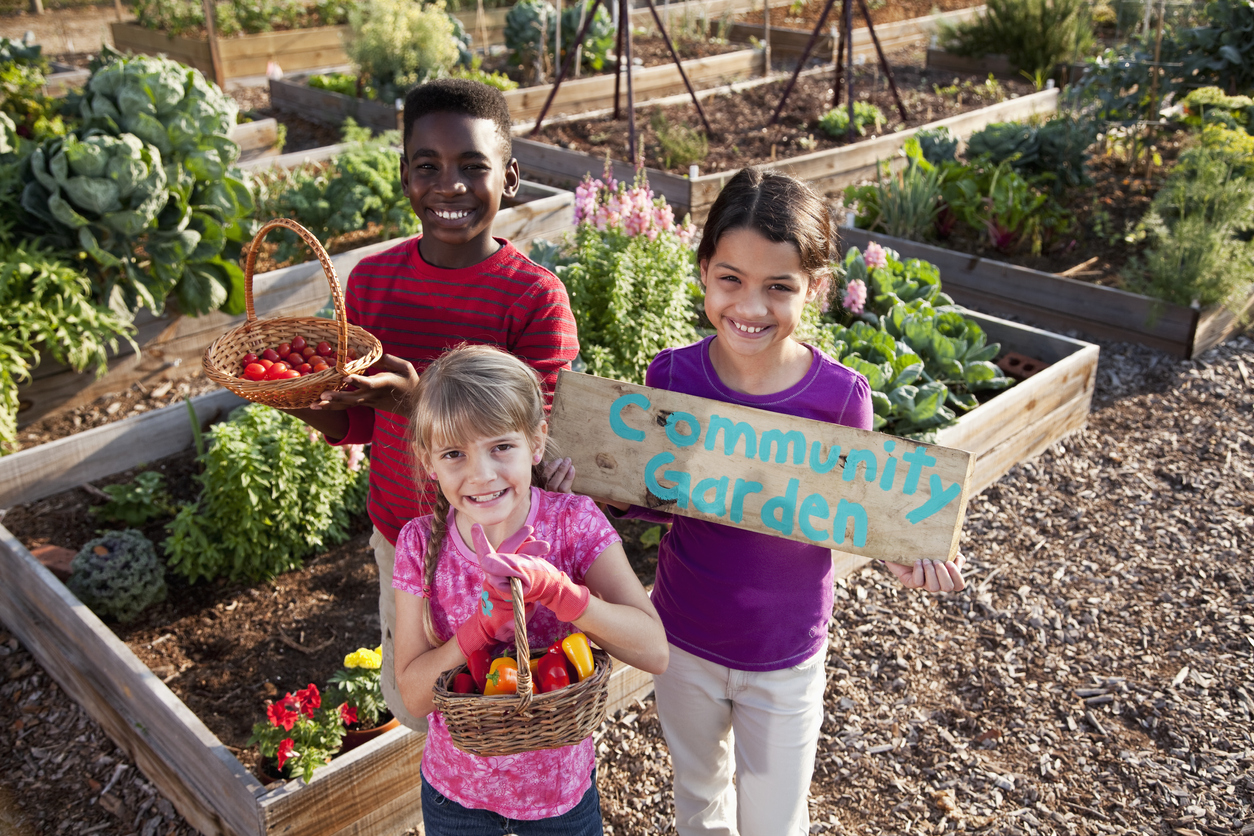
Studies show that green spaces improve our mood and growing up near vegetation reduces the risk of adulthood mental health disorders. The vitamin D we get from a healthy dose of sunlight increases energy, promotes healing, and wards off depression. And the exercise makes us feel better, too!
Fosters Bonding Time
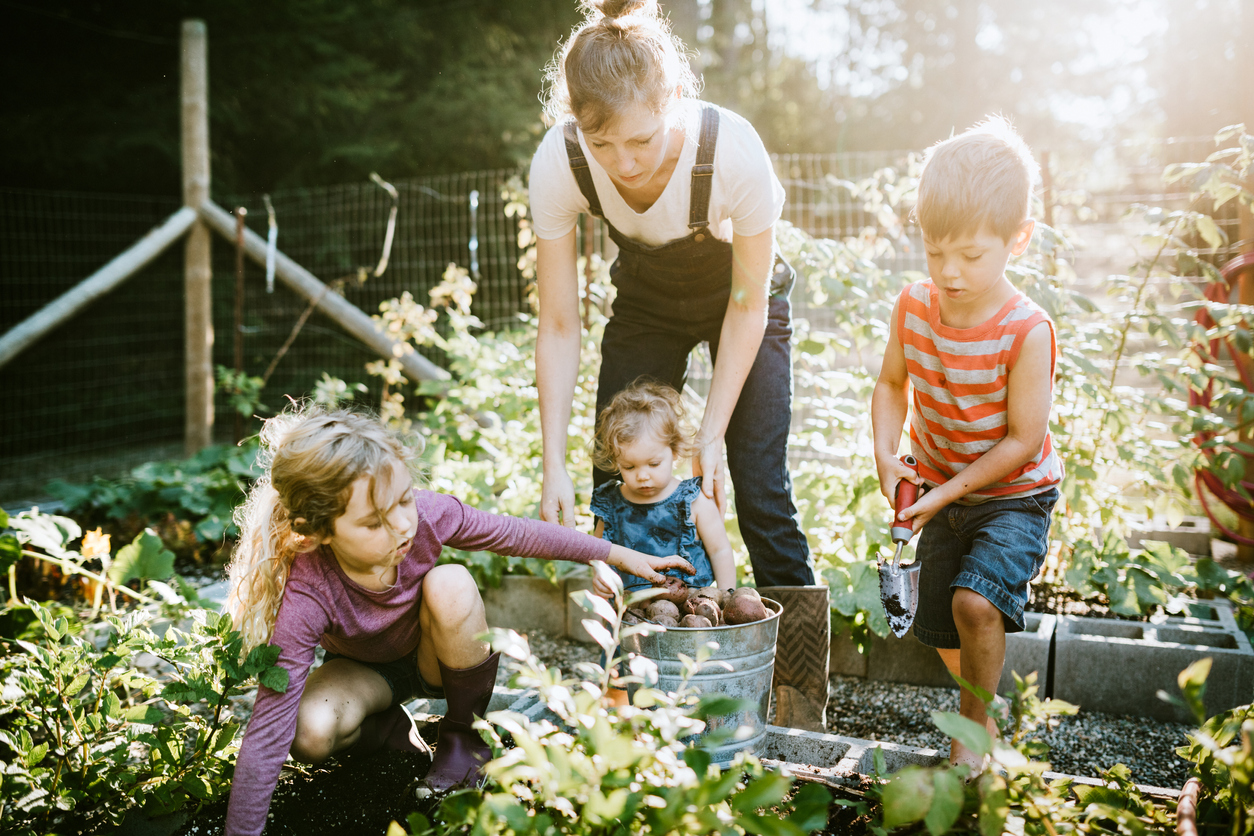
It is hard to squeeze in quality time with my three kids. We are busy, there are a lot of demands, and the day feels pulled in 25 different directions. But working as a family on a garden builds in time to slow down and connect with your child or children — as long as no one is fighting over the hose.
Stimulates the Senses
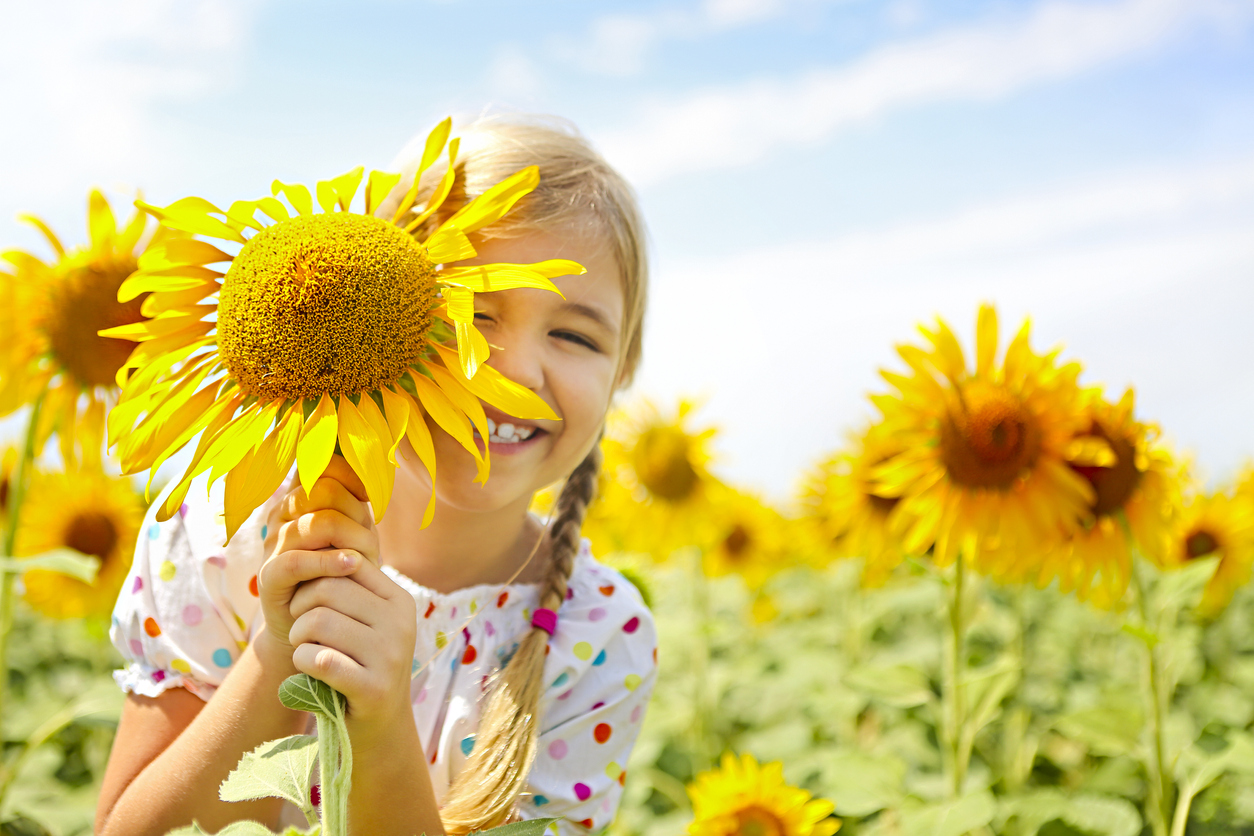
The garden is a great place to learn through the senses. Kids can touch the dirt and the plants; smell the soil, flowers, and fruit; see the bright colors of the flowers and patterns on leaves; hear the snapping of beans as they are harvested; and taste the fruits of their labor. Engaging the senses will solidify the concepts learned in the garden.
Introduces STEAM Concepts
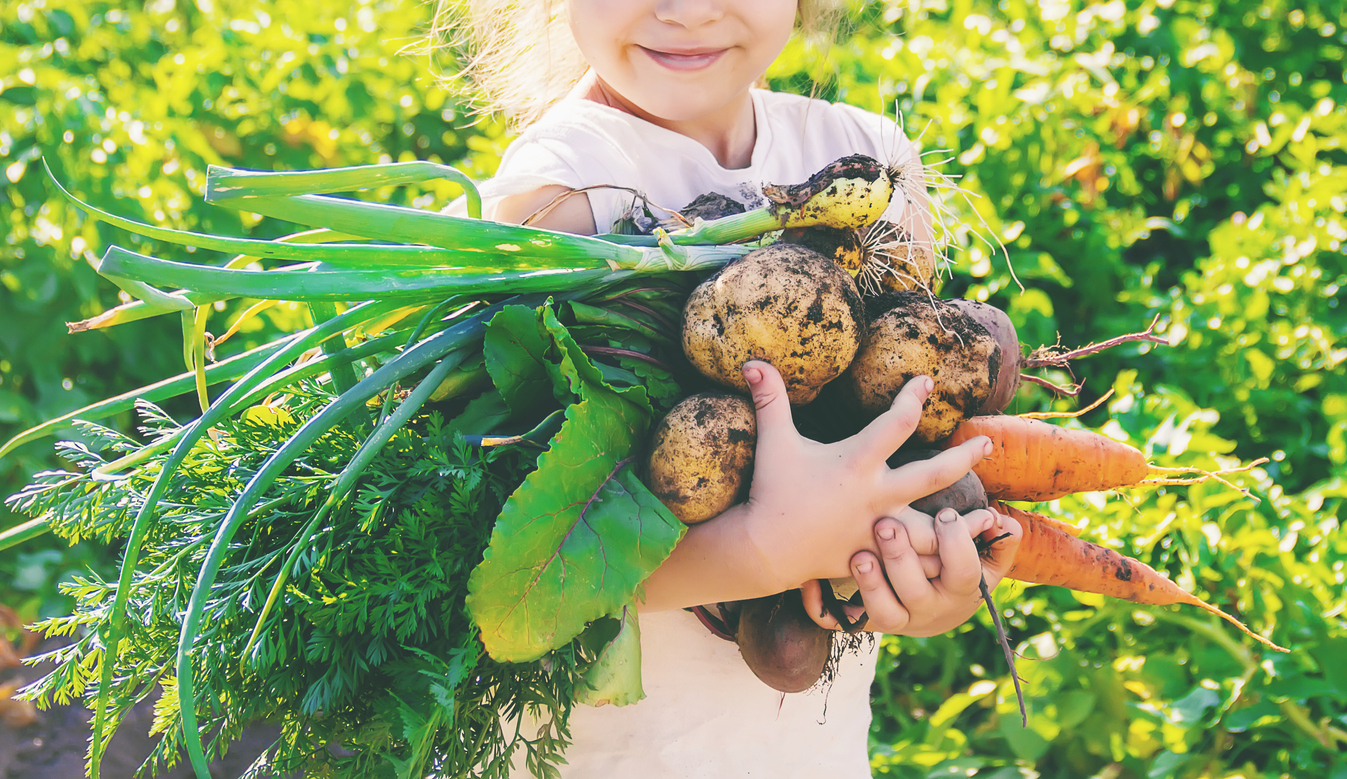
Garden work offers so many opportunities to learn about pollinators, photosynthesis, and composting. Kids can also begin to hypothesize which plants will grow the fastest or biggest. Making predictions and observations will turn your kids into little scientists.
Connects Kids to Nature
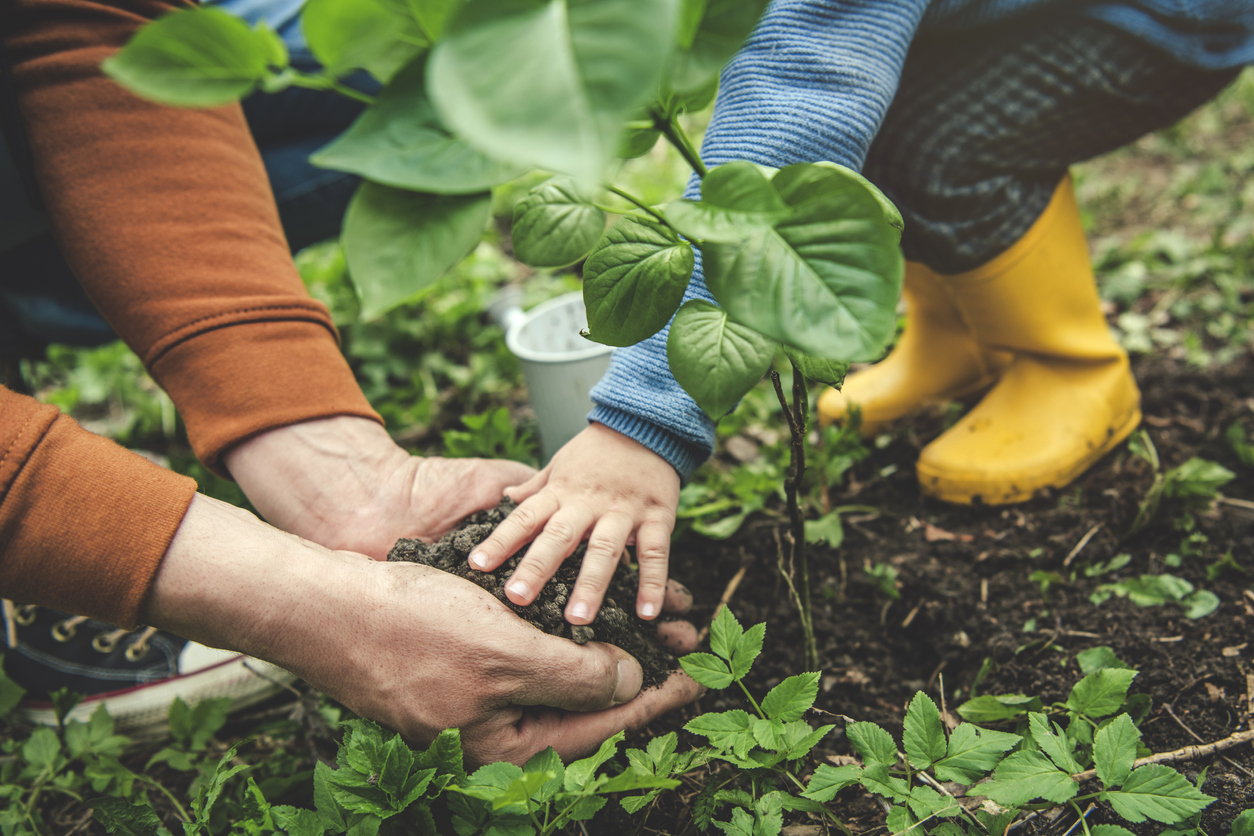
Being in nature helps kids appreciate nature. A garden shows kids how important it is to take care of Earth so it can keep taking care of us. We can teach our kids how to take care of our planet by reducing waste and using chemical-free pesticides and herbicides.
Boosts Self-Esteem
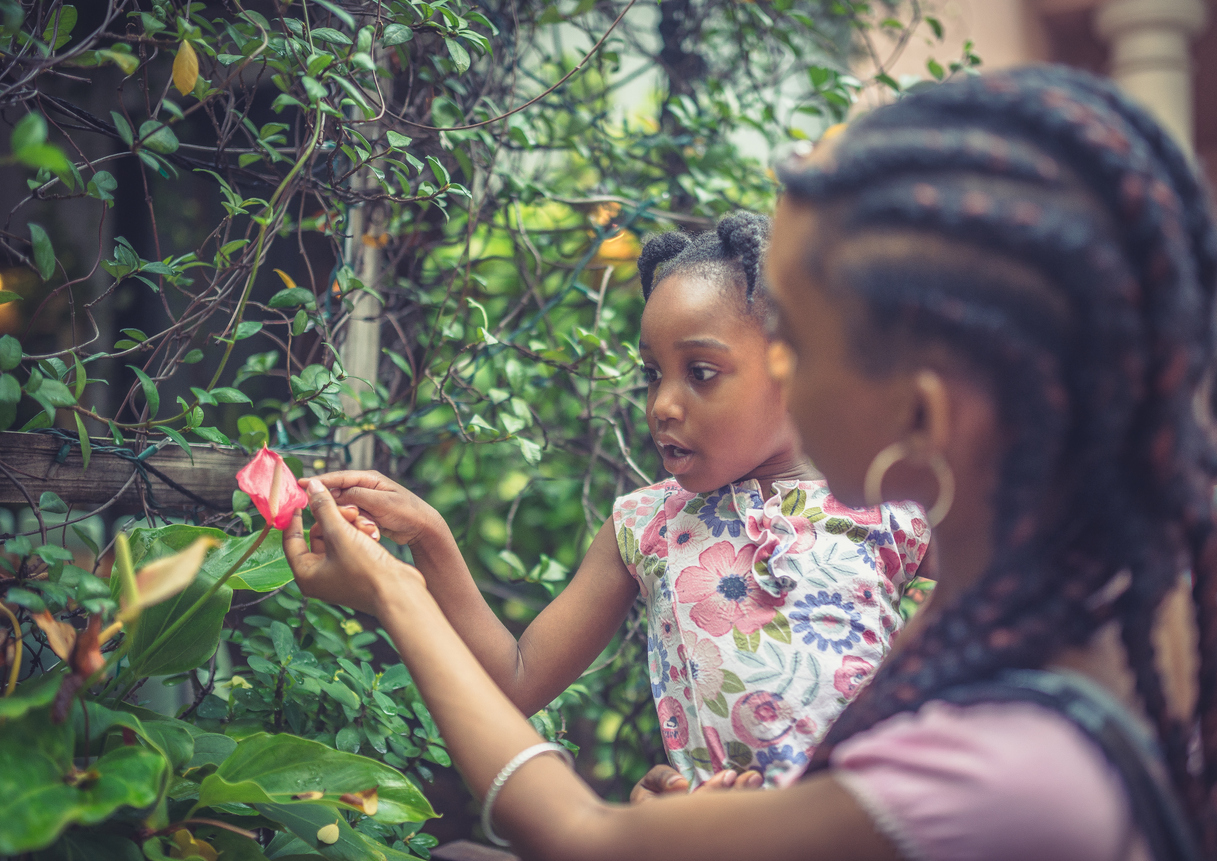
All of the hard and thoughtful work put into a garden is something your kiddo will be pretty proud of, especially when they are able to say they grew the carrots that everyone is eating for dinner.
You don’t need a lot of experience or space to garden with your kids. Growing herbs or tomatoes in pots is a great solution if you don’t have a small section of a yard to plant seeds or seedlings. The most important thing is to get the kids involved.




